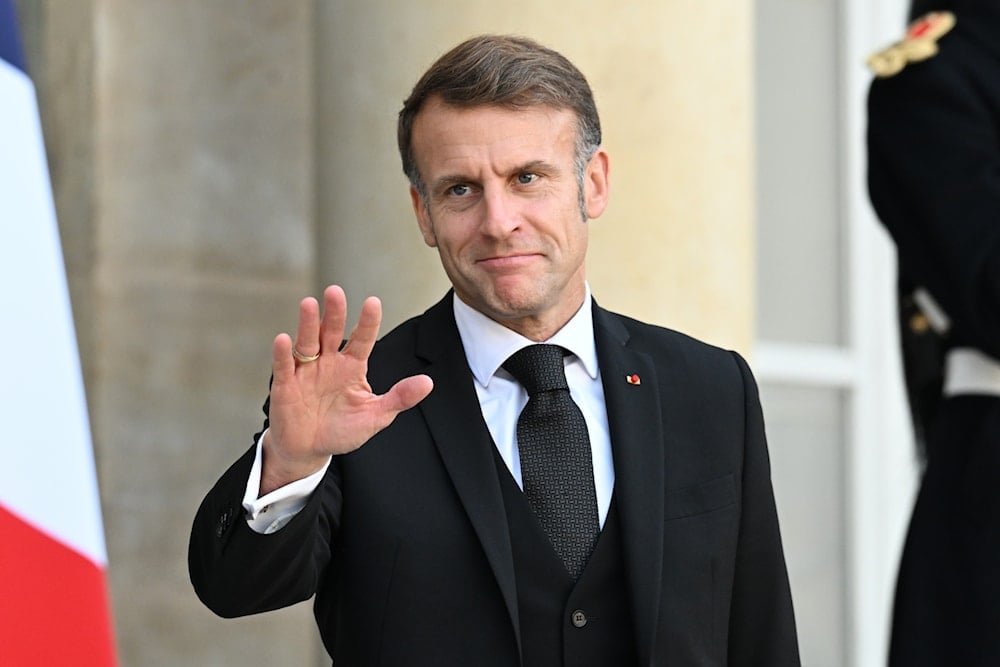Macron's mentor calls him 'worst' president, warns of far-right surge
Macron’s former mentor Alain Minc calls him the "worst" president of the Fifth Republic, blaming his narcissism for France’s political instability ahead of the 2027 elections.
-

French President Emmanuel Macron waves after a working lunch with Liberian President Joseph Boakai on October 30, 2025, at the Elysee Palace in Paris. (AP Photo/Emma Da Silva)
Alain Minc, once one of Emmanuel Macron’s closest supporters, now delivers a scathing assessment of the French president’s second term, accusing him of deepening national instability and empowering the far right ahead of the 2027 presidential election.
A former mentor and advisor to Macron, Minc described the president as the "worst" leader of France’s Fifth Republic, citing narcissism, reckless decision-making, and political denial as factors that have severely damaged French institutions and alienated both allies and the public.
Minc, a veteran political advisor and businessman who served presidents dating back to François Mitterrand, was once a vocal champion of Macron, likening him to Napoleon’s generals, gifted and lucky. But in a recent interview with Politico, Minc said Macron has become a liability.
"Macron is leaving the country in a much worse state than when he took the reins of power," Minc stated, adding, "He will leave a political landscape that is perhaps permanently unstable in France. It’s unforgivable."
The two have not spoken since Macron called a snap election in 2024, a move Minc deems catastrophic. He also criticized the president for surrounding himself with what he called “an incredibly mediocre team.”
From centrist disruptor to Political liability
When Macron burst onto the scene in 2017, his newly formed centrist movement dismantled France’s traditional two-party system. At the time, Minc advised him through what he now calls a tolerable first term. But since his reelection in 2022, Minc argues that Macron’s decisions have grown increasingly erratic, as reported by Politico.
Unlike other former allies such as Edouard Philippe or Gabriel Attal, Minc’s criticisms are deeply personal. He claims Macron’s belief in his own intellectual superiority has led him to ignore political realities and overestimate his ability to navigate crises. "Macron is in denial of reality … He is crushed by his own psychology," Minc said. He compared the president to a gambler who refuses to walk away, convinced he can win back what he has already lost.
Minc contends that Macron’s insistence on maintaining control of domestic politics, even after losing his parliamentary majority, has only worsened instability. The recent resignation and near-immediate reappointment of Prime Minister Sébastien Lecornu was, in Minc’s view, emblematic of Macron’s refusal to delegate or accept political compromise.
According to Minc, as cited by Politico, Macron must now step away from domestic affairs and focus on foreign policy, where his influence may still be relevant. However, Macron has shown no indication of doing so. Meanwhile, public dissatisfaction appears to be growing. A recent poll showed Macron tied with his predecessor, François Hollande, as the least popular French president in half a century, following the latest political crisis.
France faces political fragmentation ahead of 2027
Macron’s actions, Minc said in the interview, are accelerating the fragmentation of France’s political landscape, and his refusal to build genuine coalitions with other mainstream parties is weakening the centrist bloc he once led.
Despite public calls for unity, Minc argues that Macron is neglecting his own political base. Instead of pursuing strategic alliances, he has alienated potential partners, creating fertile ground for the far right to consolidate its support.
Minc warns that the only political force currently capable of winning the 2027 presidential election and forming a parliamentary majority is Marine Le Pen’s National Rally. He called such a scenario both "terrifying" and "dishonoring" for Macron, who once positioned himself as the bulwark against extremism.

 4 Min Read
4 Min Read










